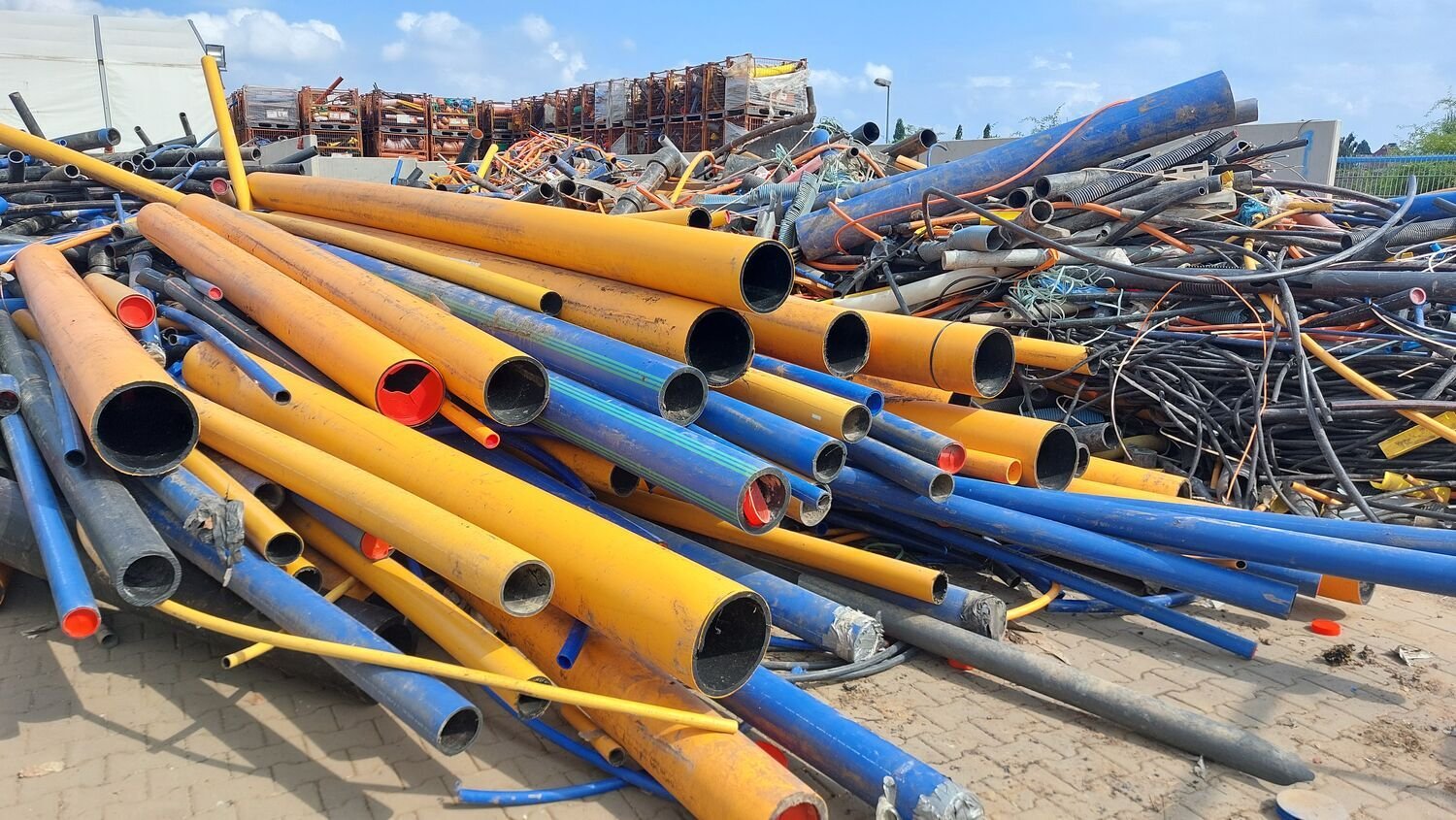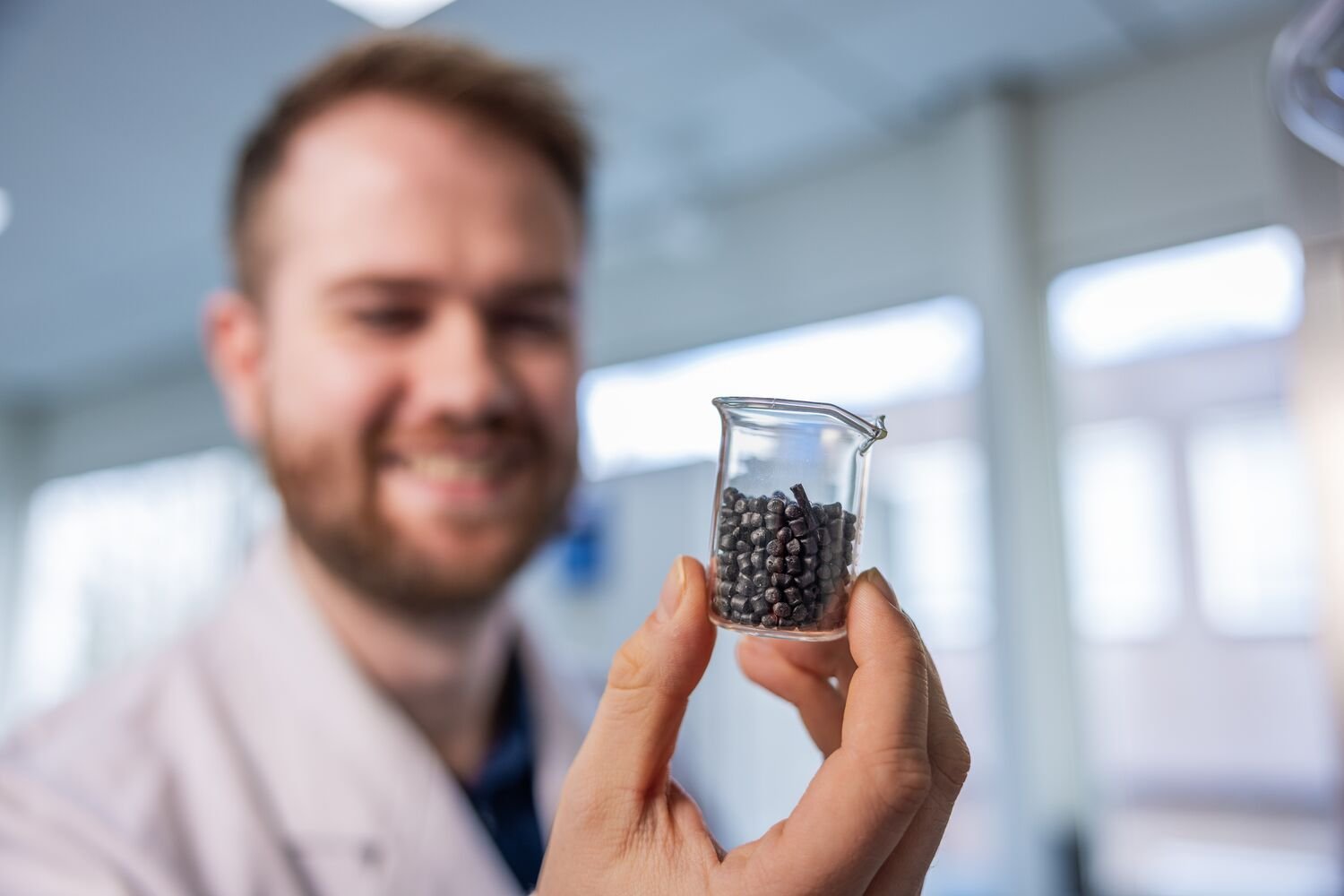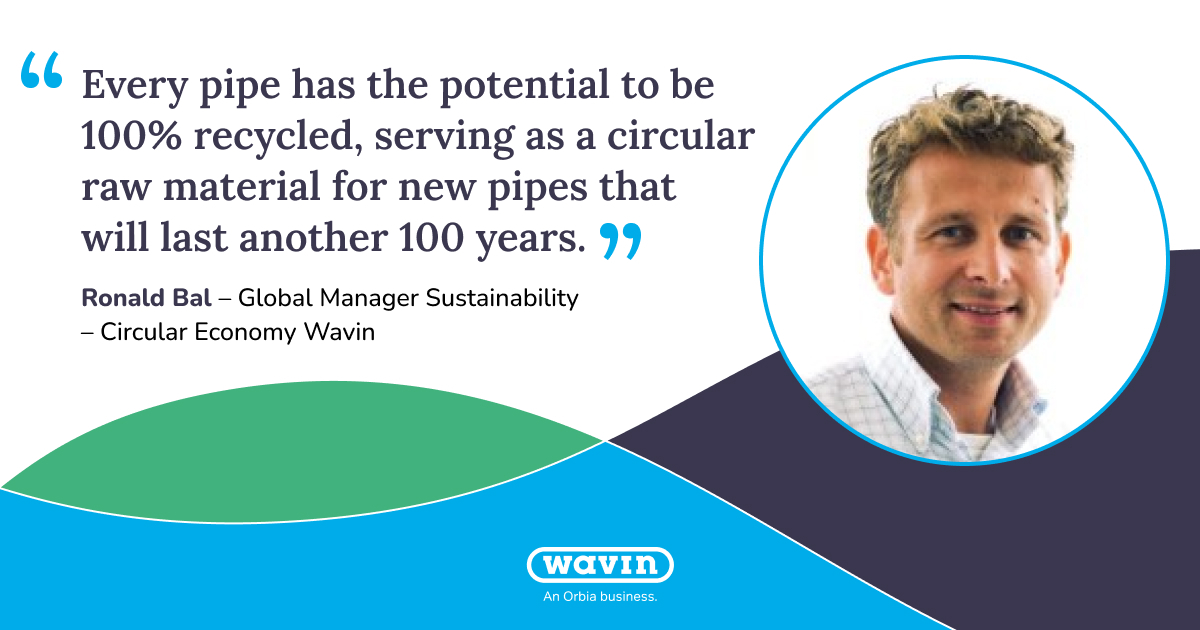Plastic pipes' sustainability credentials have increased after it was confirmed that they offer more long-term durability than the 50-year lifetime typically set by product standards. A recent meta-study by the University of Leoben, commissioned by The European Plastic Pipes and Fittings Association (TEPPFA), finalizes the debate on plastic longevity, confirming that plastic pipes can last for over 100 years.
This acknowledgment of plastic’s ability to offer durable, long-term solutions highlights the potential of true circularity. With a high-quality circular system in place, the initial 100-year lifespan of plastic pipes is just the beginning, as re-use and recycling technologies can be leveraged to unlock another 100 years of use and beyond. In this article, Ronald Bal, Global Manager for Circular Economy at Wavin (an Orbia business) explains why it’s time to look to multi-sector partnerships to drive a circular economy across the industry - intensifying collaboration between collector, recycler and brand owner to improve the processes and quality standards around recycled materials.
100 years and beyond: key insights from the study
The conclusions of the meta-study, which consolidated research from 49 sources, solidified what industry experts have known and communicated about plastic pipe longevity for many years. From a sustainability perspective, Bal sees two substantial benefits from the meta-study.
Firstly, it encourages a positive change in general perspectives on plastic, moving perceptions away from plastics as throw-away, single-use materials. Bal emphasizes that: “single-use isn’t the kind of plastic we’re dealing with in pipes; we have a completely different kind of application” and the study helps to put this back in the frame by highlighting how critical infrastructure can benefit from the long-term, highly durable and sustainable properties of plastic.
Secondly, the meta-study reinforces the importance of meticulous production practices and precise installation to ensure a 100-year lifespan. Achieving this means considering various factors, such as soil stability, which significantly influence pipe longevity. By implementing and supporting high standards at all stages, from manufacturing to installation, manufacturers like Wavin can drive the longevity of plastic pipes, enhancing their sustainability.
Building on this, Bal suggests the meta-study reinforces the importance of Wavin’s commitment to high-quality production for both product durability and overall sustainability: “The most important takeaway from this meta-study is that products can indeed have a lifetime of 100 years—but under certain prerequisites. One is that we, as a manufacturer, control the production process to ensure our product meets the standards applicable to our market. We influence and control this, and it’s our main responsibility.”

Promoting industry-wide best practices
While Wavin has established rigorous internal standards to maintain product quality, collaboration across the industry will be crucial to developing a sustainable and circular model for plastic pipe manufacturing, use and end-of-life reuse. Ensuring that clients and contractors understand best practices around installation and maintenance is essential, particularly in adhering to EN and ISO standards.
The meta-study reflects this sentiment, suggesting that achieving the maximum lifespan of plastic pipes requires careful consideration at every stage — from design and manufacturing to installation and operational conditions.
This reinforces that plastic pipe longevity isn't solely determined at the outset but requires meticulous adherence to standards and best practices throughout the entire product lifecycle — including end-of-life.
An ambition for the next 100 years
Bal believes this final step is a crucial one that’s often overlooked. “We have an obligation to dig up the old pipes we replace. Leaving them in the ground unused is a missed opportunity for restoration and reuse. Also, disposing of pipes in mixed waste streams destined for energy recovery is an extremely negative scenario. We're not just missing a chance to reuse valuable materials but also generating significant emissions through unnecessary burning. Every pipe has the potential to be 100% recycled, serving as a circular raw material for new pipes that will last another 100 years.”
That’s why Wavin is scaling up efforts to repurpose end-of-life pipes, using these materials to design and manufacture new pipes guaranteed to meet the same EN standards for strength and lifetime as virgin pipes.
Promoting a circular economy in this way reduces waste by retaining valuable materials in a closed-loop system. This reduces the carbon footprint associated with new material extraction and, at the same time, “keeps the carbon within a managed system, preventing leakage into the environment”.

Towards a circular economy with regulatory support
Responsible manufacturers like Wavin are already committed to circularity and sustainable practices, but broader buy-in to these approaches lags behind ideal scenarios.
“We really need to mobilize the market; effective solutions exist, and it should be obvious that we shouldn't throw things away or burn them,” Bal asserts. While he sees potential in international standards that incentivize sustainable practices, he also cautions that some existing regulations could hinder progress toward a circular economy by reinforcing a linear model.
Committing to a closed-loop future
Navigating the challenges of a circular economy is tough, but recycling initiatives like Wavin’s Take-Back scheme are an example of the significant impact sustainability initiatives can have. Available in the Netherlands, Sweden, Brazil and Colombia, the scheme ensures that pipes are returned to the correct type of recycler.
Take-Back is a powerful example of how taking the initiative, coupled with strong collaboration across the entire chain, can deliver effective circularity results.
Co-operation is the key to a circular economy
Wavin believes that true sustainability success will only come when the entire supply chain works in collaboration, so the 100-year mark is just a foundation for the sector to build on further.
With collaborative efforts from manufacturers, contractors, waste managers and recyclers, the industry can close the loop and take a circular approach to plastic pipes, creating a more resilient and environmentally responsible future.

For more insights into the role recycled materials play in our sustainability journey, take a look at our dedicated webpage.
We also interviewed Maarten Hamberg (Senior Technology Manager) and Jeannette Mulder (Standardization and Certification Manager) about the TEPPFA meta-study. Be sure to read their perspectives as well.
